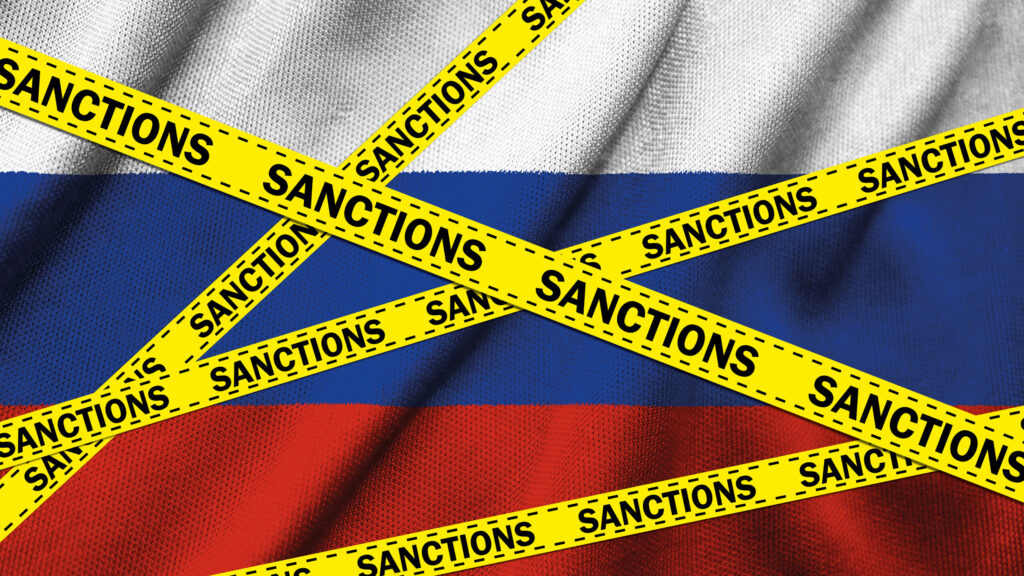The war in Ukraine has brought about financial sanctions at an unprecedented scale and scope. From billionaires to entire sectors, these sanctions’ impact is being felt worldwide. And these effects are creating tough situations for financial institutions globally.
Banks facing new regulations
Banks are facing new regulations as well as more severe punishments if they are not followed. The spotlight has turned to these banks to monitor and sanction any bad actors within their firms that attempt to evade regulations.
However, this view of sanctions is often seen as black and white when, in reality, it is far from that. The key aspect missing from these discussions is the human one. It is often forgotten that behind a name on a list is entire life and community.
So, when an individual with significant assets is sanctioned, and the team of bankers who supports them must cease all communications, the immediacy of this change is difficult if not potentially impossible to implement.
Opening yourself to risk
This opens banks to significant risk, as these bankers are potentially breaking laws, which, ultimately, falls on the institution.
And the penalty for violating sanctions is not something to take lightly.
Breaches of these regulations are criminal offenses, punishable by up to seven years in prison with monetary penalties of up to £1 million or 50% of the estimated value of the funds or resources of a transaction.
Putting these sanctions in perspective is vital to understanding the severity and the unprecedented nature of current events.
Current sanctions in context
Sanctions have been a common tool in foreign policy for years. But the current regime imposed on Russia has been unparalleled, particularly impacting financial institutions.
Compliance teams have had to scramble to ensure they were meeting their regulatory obligations while sanction lists were continuously changing.
The last use of international sanctions was in 2021 when the American government imposed restrictions on the Russian government in relation to a cyber-attack during the 2020 Presidential election. Before that, in 2018, sanctions resumed against the Iranian government following America’s withdrawal from the Iran Nuclear Deal.
But although both examples were serious and extensive, they fail to compare to those currently in place against Russia, which spans across government, business, and high net-worth individuals.
To put it in perspective, many multi-national corporations have ceased operations in Russia, and some have divested fully.
Using technology to capture and monitor illegal activity
To mitigate risk, banks must take stock of their current compliance processes. This will help them understand any loopholes which can allow illegal activity.
Compliance platforms use cutting-edge technology to help banks do this by accurately capturing, archiving, and indexing data to close loopholes and promote full compliance.
The Smarsh platform uses Machine Learning and AI to reduce false positives and negatives without creating more work for compliance teams.
Against the backdrop of these issues, and with bankers increasingly using their own devices after over two years of working from home, institutions are struggling to adapt and ensure full compliance with regulations.
Ensure compliance on any app
Bring-your-own-device (BYOD) allows employees to use their personal devices for work-related communications and activity, typically including encrypted applications, such as WhatsApp and WeChat, that are notoriously difficult to monitor.
But, with Smarsh technologies, banks are now able to monitor even the most difficult apps and have a better chance than ever to ensure compliance.
It is important to note that while no solution can ever provide 100% coverage, compliance technology provides banks with the best tools to protect themselves.
While in-person meetings will continue, critical information will still be discussed at the local pub, most businesses are keeping a hybrid working model.
So, this technology can help to protect hybrid businesses from the digital communications we’ve become accustomed to but can cause considerable risk.
Keep up with regulatory laws
Despite the ongoing geopolitical situation, a business must continue, and so will banking.
It is up to financial institutions to keep up with regulatory laws and sanctions lists, which can quickly change, but to also monitor employees who may choose to evade or work around laws.
By using compliance technology, businesses can be assured they are doing everything possible to be compliant.
Shaun Hurst, Principal Regulatory Advisor for EMEA, Smarsh
